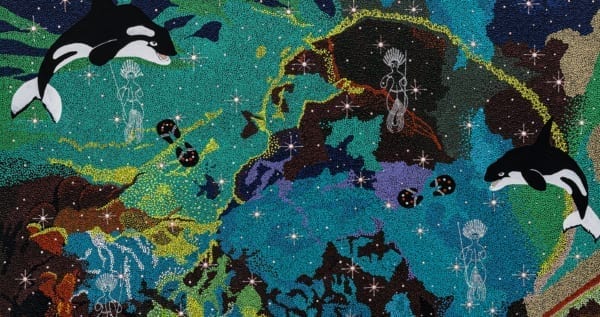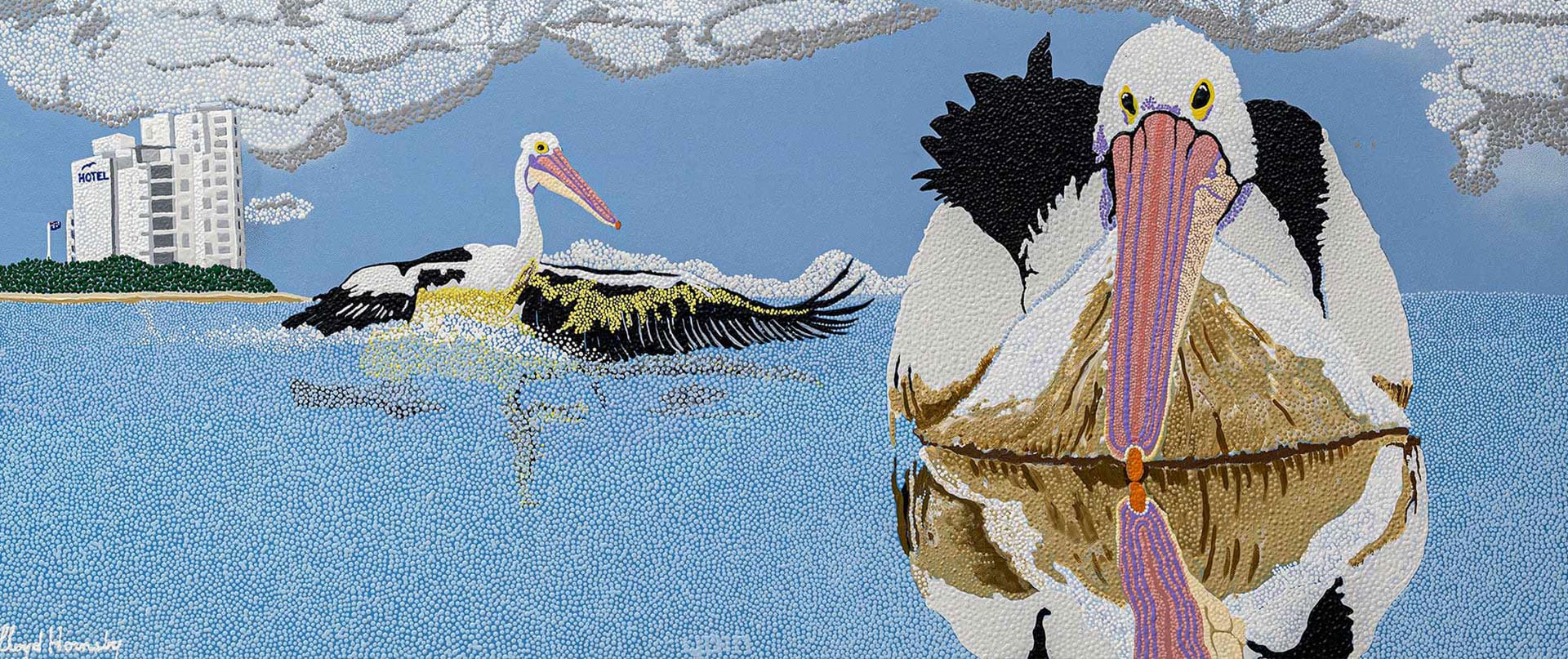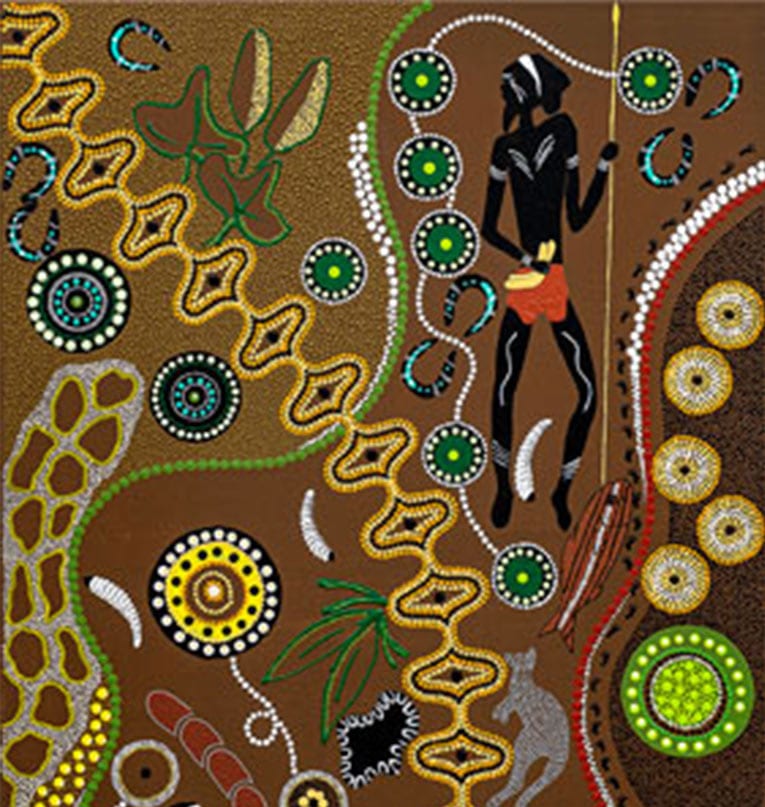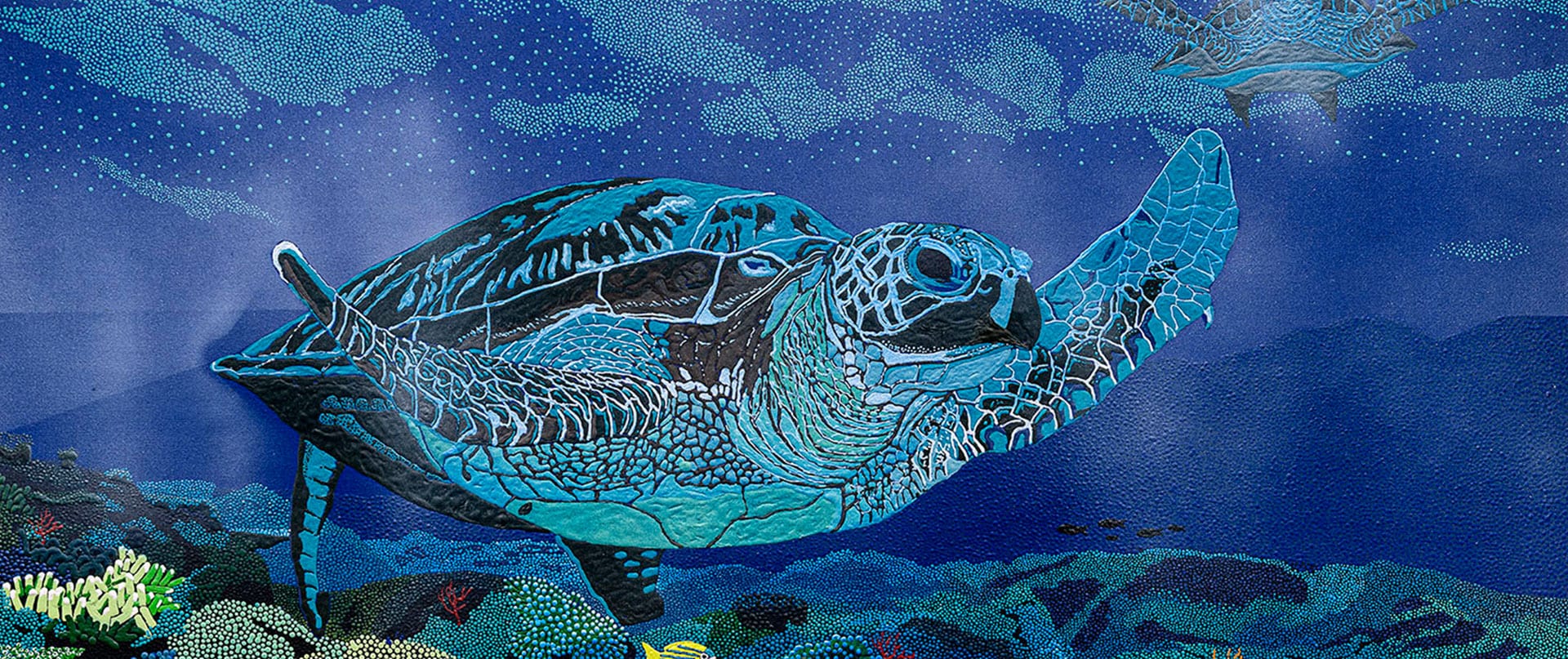Description
Artist Statement
Yuin dreaming says when Yuin men die they reincarnate as an Orca.This image is the reincarnation of the Yuin warriors that have passed. Lloyd Gawura Hornsby’s traditional land was the site of the first shore-based whaling station on mainland Australia, the industry was a vital part of Eden’s economy for almost a century. However, it was the remarkable relationship between the whalers in their open boats and the pods of killer whales frequenting the area that made the local undertaking so notable. While Oscines Orca had preyed upon baleen whales and other ocean creatures for thousands of years, only in Twofold Bay was there an ongoing documented occurrence of the killers, as they were popularly known, working in co-operation with man to hunt for mutual benefit.
In an association dating back thousands of years, the local Aboriginal people, the Katungal (or sea coast people) were the first to foster the unique bond with the Twofold Bay killers. Part of the larger Yuin (Murring) nation, the group occupied an area extending from about Nowra down the coast to Green Cape. Over countless centuries they had developed a deep appreciation and understanding of their natural environment, so not surprisingly; their spirituality, beliefs, customs and laws were inextricably rooted in the land and all it had to offer. While it is uncertain exactly when Orcas began frequenting Twofold Bay, they feature strongly in the Katungal’s sacred belief system. According to their age old lore, the “beowas” (or “brothers”) were family members reincarnated to the sea. Across the centuries, the local people benefitted from the killers’ natural instinct of herding migrating whales, seals and other ocean creatures into the shallows where they either became stranded or were within reach of a well-aimed spear, this valuable and much appreciated food source reinforcing the reverence with which the killers were regarded.
As one of the oldest human / animal hunting partnerships in the world, oral tradition documents this unique collaboration. The local indigenous people, responding to their generosity, would call the beowas with chants and water slapping, offering gifts of food including the much prized whale tongue, an extraordinary bond that was noted by early Europeans. And possibly because of the integral involvement of indigenous crew members from very early on in Twofold Bay’s commercial whaling industry, the killers continued to play a significant and well documented part over almost a century.
Size 46.5cm x 62cm







